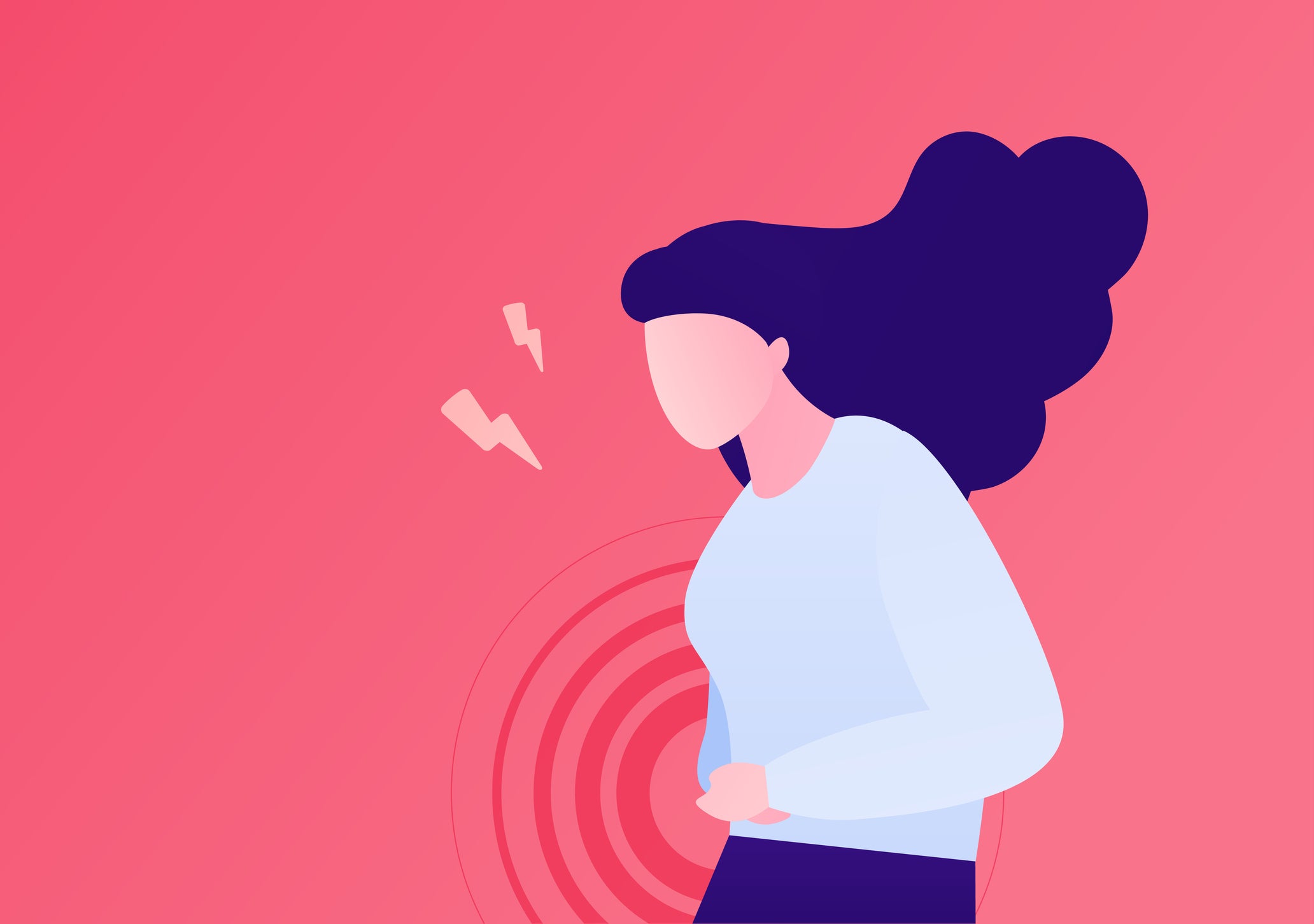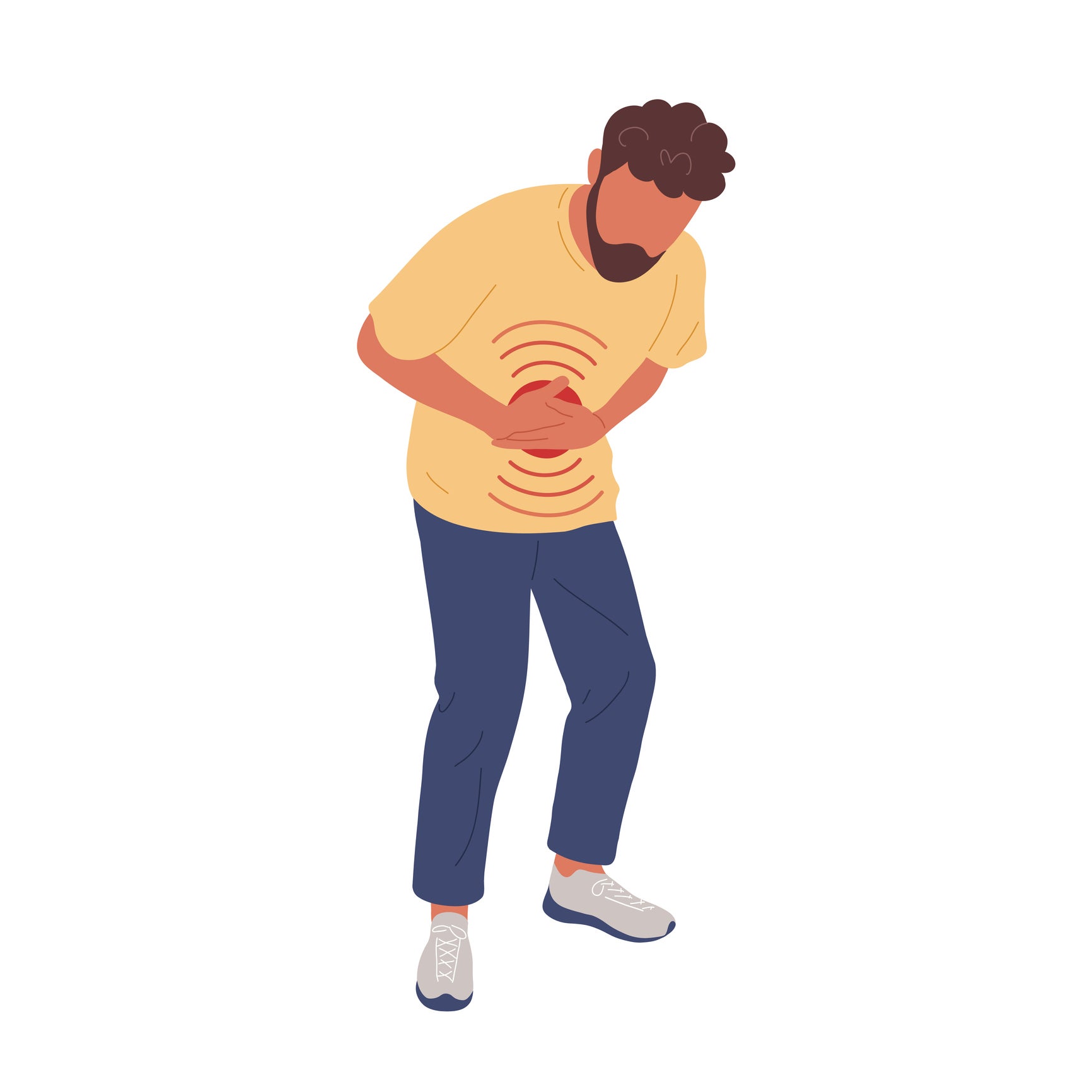The Independent's journalism is supported by our readers. When you purchase through links on our site, we may earn commission.
Are my stomach problems in my head?
There’s an exhaustion that comes from years of trying to make something go away that insists on hanging around, writes Constance Sommer

Your support helps us to tell the story
From reproductive rights to climate change to Big Tech, The Independent is on the ground when the story is developing. Whether it's investigating the financials of Elon Musk's pro-Trump PAC or producing our latest documentary, 'The A Word', which shines a light on the American women fighting for reproductive rights, we know how important it is to parse out the facts from the messaging.
At such a critical moment in US history, we need reporters on the ground. Your donation allows us to keep sending journalists to speak to both sides of the story.
The Independent is trusted by Americans across the entire political spectrum. And unlike many other quality news outlets, we choose not to lock Americans out of our reporting and analysis with paywalls. We believe quality journalism should be available to everyone, paid for by those who can afford it.
Your support makes all the difference.The New Mexican desert unrolled on either side of the highway like a canvas spangled at intervals by the smallest of towns. I was on a road trip with my 20-year-old son, Eli, from our home in Los Angeles to his college in Michigan. Eli, trying to be patient, plowed down Interstate 40 as daylight dimmed and I scrolled through my phone searching for a restaurant or dish that would not cause me pain. After years of carefully navigating dinners out and meals in, it had finally happened: there was nowhere I could eat.
“I’m so sorry, honey,” I said. “I feel really, really bad.” And I did. I was on the verge of tears, as much out of self-pity and shame as any maternal concern.
Eli shook his head. “It’s OK, Mom. It’s not your fault.”
But it was. Because of me – or, to be precise, my digestive system – we would not eat until we reached Amarillo, Texas, at 10pm, where I bought frozen food from a grocery store near our Airbnb.
My gut is not a carefree traveler. Ingest the wrong items and my stomach feels as though someone’s scoured it with a Brillo pad. For the next few hours, I may also experience migraines, achy joints and a foggy, feverish sensation as though I’m coming down with the flu. My doctors call this irritable bowel syndrome, or IBS. I call it a terrible shame.
IBS is a diagnosis of exclusion, a so-called functional disorder scribbled in your chart only after every test and examination has come back normal. Simply put, there’s nothing wrong with my stomach that our current medical tools can detect. Some physicians and researchers have described this condition in terms of a mind-gut connection.
Studies suggest that female sex hormones modulate the brain-gut connection, and as these hormones wane women may experience more severe IBS symptoms
“Everybody has contractions in their gut,” says Dr Emeran Mayer, a gastroenterologist at the University of California, Los Angeles, and author of The Mind-Gut Connection: How the Hidden Conversation Within our Bodies Impacts our Mood, our Choices and our Overall Health.”
The same contractions that go unnoticed by most people cause pain in IBS patients, who have become hypersensitive to sensations in their gut, he says. Calm the mind, the thinking goes, and the gut may follow.
Fair or not, I hear this prescription and think, oh, so this is all in my head? Then I fear that my stomach aches are my fault, the product of an anxious mind that I cannot tame into submission.
That night on the highway, I kept wanting to apologise to my son again. But as Eli flicked on the headlights, I realised he accepted me the way I was. And I wondered, what if I could, too?
My IBS journey started about nine years ago, at age 44, when I noticed that my migraines – for decades reliably yoked to my menstrual cycle – were accompanied by a sour stomach, like my gut was sucking on lemons. Cutting out gluten helped, but as the years passed, my gut continued to deteriorate.
I later learned that my experience is not unusual. Studies suggest that female sex hormones modulate the brain-gut connection, and as these hormones wane women may experience more severe IBS symptoms.

Eventually, I dropped 10lb because eating had become so painful. That’s why, in 2015, I landed in the office of a gastroenterologist. He ran a bunch of tests – blood, scopes – and when everything came back negative, he diagnosed me with IBS.
It could have started with a past infection, he said. Recent stresses in my life probably didn’t help. He had no way of curing me, but he advised me to relax more and manage my diet.
If my IBS was set off by stress, I thought, I must be the most neurotic person I know. Thoughts like these did not help me calm down. But that became my new goal: to relax so my belly would no longer hurt.
I’d download a new meditation app or try a different therapist or attend restorative yoga classes. My list of restricted foods continued to grow, though – no more dairy, soy, alcohol, peanuts, garlic, beans or lentils. I avoided wine-and-cheese gatherings and scoured the ingredients on packaging and menus. When I stayed off problem foods, my stomach felt better.
If I decided I was calmer and began to edge off my strict diet, I would be miserable again. When I asked Mayer why no amount of calming would allow me to eat gluten or garlic without pain, he warned me not to underestimate the power of fear.
“It’s a very common thing in IBS patients,” he said. He added that an IBS patient’s system “looks at food as a potentially dangerous thing”.

Then, this August on that same trip with Eli, I read about a new theory for IBS. A paper published in The New England Journal of Medicine theorised that an abdominal infection could temporarily disturb the cell barrier that lines the colon. With the barrier disturbed, allergy-inducing proteins can get absorbed by the colon, setting off localised allergic reactions to certain inflammatory foods like gluten, and leading to reverberations up and down the digestive tract.
I’d been telling people for years that I didn’t have allergies to certain foods, even though my body’s response to them felt automatic. Now this research seemed to indicate what I was feeling could be an allergic reaction – one that no amount of hypnotherapy or journaling was going to make disappear.
When I read this, scrolling through my phone at a motel in Illinois, I thought: I knew it. The stabbing stomach pains that woke me at 3am after eating garlic or black beans weren’t caused by my subconscious; it was my damaged gut.
Later, I called Dr Marc E Rothenberg, one of the paper’s authors and the director of the division of allergy and immunology at Cincinnati Children’s Hospital Medical Centre, to get more clarity. “Stress modifies, and can exacerbate, the underlying disease physiology,” Rothenberg said. “But stress is not the cause of IBS.”
There’s an exhaustion that comes from years of trying to make something go away that insists on hanging around. These days, I’m a little less tired from the struggle and a little more at peace with my body. I’ve finally come to the conclusion that suits me: my gut is different from other people’s.
From time to time, I still try new remedies to improve digestion or better manage anxiety: a probiotic, Chinese herbs, a new meditation app. But if I’m never able to eat another grilled cheese sandwich (dairy cheese, wheat bread, actual butter), I can live with that. And that’s the most relaxing mantra there is.
This article originally appeared in ‘The New York Times’




Join our commenting forum
Join thought-provoking conversations, follow other Independent readers and see their replies
Comments